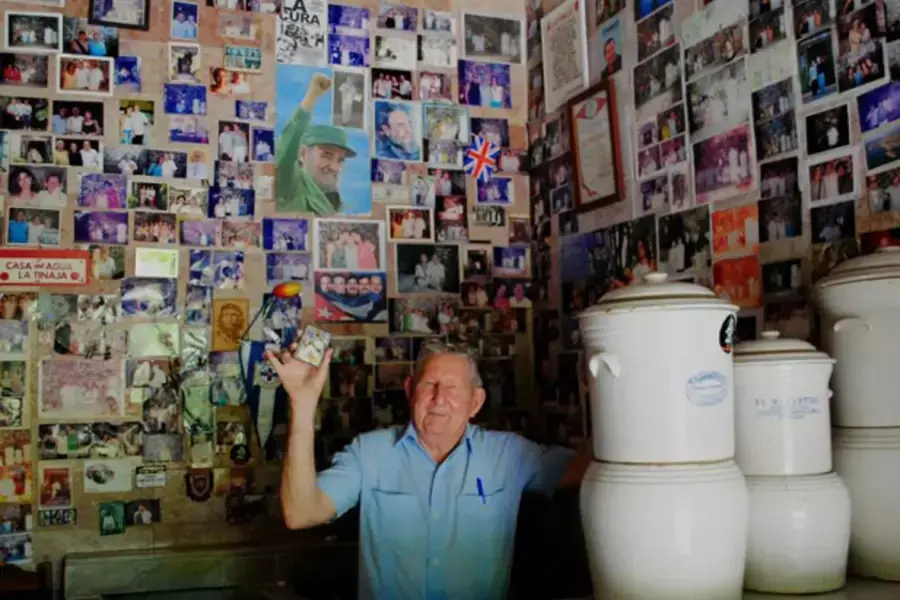The Cuban Renaissance: The Good, the Bad, and the Necessary

This is a guest post by Valerie Wirtschafter, a research associate with the Women and Foreign Policy Program at the Council on Foreign Relations.
Since December 17, 2014, Raul Castro and Barack Obama’s efforts to normalize U.S.-Cuban relations have become a constant fixture in the media. Yet this diplomatic thaw represents a culmination of reforms on the island, which accelerated when Raul Castro officially took office in 2008. Opening up to the world is not without trade-offs, and reform has already brought a combination of good, bad, and necessary change to the island and its people.
More on:
In a 2010 national address, Raul aptly stated, “We reform, or we sink.” As president, he downsized the number of state jobs, pushing more Cubans into the private sector. The government also privatized large plots of land in an attempt to increase domestic production. New laws now permit Cubans to rent out rooms in their homes as part of a growing informal tourism industry. Due to the rebirth of self-employment, many lined up to pay income taxes in 2013 for the first time in over fifty years.
The impact of these reforms was on full display when I visited Cuba three weeks ago as part of a “people to people exchange,” a category of license established in 2000 and issued by the U.S. Treasury Department to build cross-cultural relations between Americans and Cubans. At first glance it may seem as though Cuba is a nation stuck in the 1950s. However, as I roamed the beautiful if dilapidated streets of Havana, it became clear that the vision of the island as a nation wholly cut off from the world is inaccurate – based only on clichéd photographs of old cars and crumbling infrastructure.
The Cuban people we spoke to are highly informed about ongoing developments in their political system, and in the U.S. political climate. They are eager to talk about the new U.S.-Cuba policy changes, about which they express a mix of fear and anticipation. After asking where I was from, nearly every conversation turned to the policy shift. Locals from all walks of life candidly asked: “What will happen after Obama leaves office, if someone less open to diplomatic negotiations comes into power? Given political polarization in the United States, will the embargo ever be lifted?”
Despite diplomatic barriers and limited and expensive Internet access, U.S. popular culture penetrates the island. Young adults are enthralled with the most recent seasons of Game of Thrones, the Voice, and Grey’s Anatomy. Taylor Swift and Sam Smith blare from the worn out radios of old Edsel cars driving down the streets. Airbnb lists over a thousand properties for rent in Havana alone. I was able to access almost every frivolous application on my iPhone over WiFi connections – which the government recently announced it would make available to more Cuban people at a lower cost.
Raul’s reforms also have brought much-needed economic relief to an impoverished population. Many Cubans are still paid a paltry salary of approximately $500 Cuban pesos (CUP) a month (US$20). However, following the birth of a parallel currency pegged to the U.S. dollar and exclusively for foreigners in 2004, Cuban people can now live off of tourist money funneled into the private sector. Private businesses have blossomed due to the relaxation of limits on remittances from Cuban Americans to the island. Start-up funds from relatives in the United States bring in the necessary cash for Cuban families to build their own streams of revenue through self-employment.
More on:
The paladar, or the private restaurant, is one of the most pervasive private industries in Cuba. Though paladares have existed since the 1990s, their numbers increased substantially after Raul took office. At the many paladares our group visited, we were often the only customers the owners saw that night. A full three-course meal provided enough money for a family to live on for months, or at least until the next tour group came rolling in.
The government’s reform efforts have produced unintended consequences as well. Though private sector employment has helped some Cubans escape poverty, it also has increased inequality. The divide between the public and private sector workforce is opening up visible socioeconomic fissures in a country that once professed to have eliminated the class system all together. As Cuban Americans begin to buy properties in Havana and elsewhere in the coming years, they will further exacerbate these divisions.
Cuba’s gradual opening has also impacted tourism, which is heavily monitored by the government. The hotel industry in particular – including the State run Hotel Nacional in Havana – seems to glorify the country’s gangster past, a violent history that partially spurred popular support for Fidel Castro’s Revolution. Equally bewildering, a number of reporters recently photographed Paris Hilton taking “selfies” with Fidel’s son at the Habana Libre, which used to be a Hilton Hotel before Castro nationalized it.
Though Cuba is on an irreversible path, so far reform has meant creating space for the good, letting some of the bad return, and above all, implementing what is necessary to survive as a nation. I can only hope that future changes are deliberate enough to address the areas in need of dramatic overhaul without tarnishing what is enviable about the country. Cubans are among the most literate in the world, and their health system actually provides for the people. The island is one of the safest countries in the Western hemisphere, all the more impressive in a region plagued by gun violence and drug trafficking.
While I cannot begin to take a guess as to what Cuba will look like the next time I visit, I know it will likely be dramatically different. I can’t wait until that day comes.
 Online Store
Online Store
